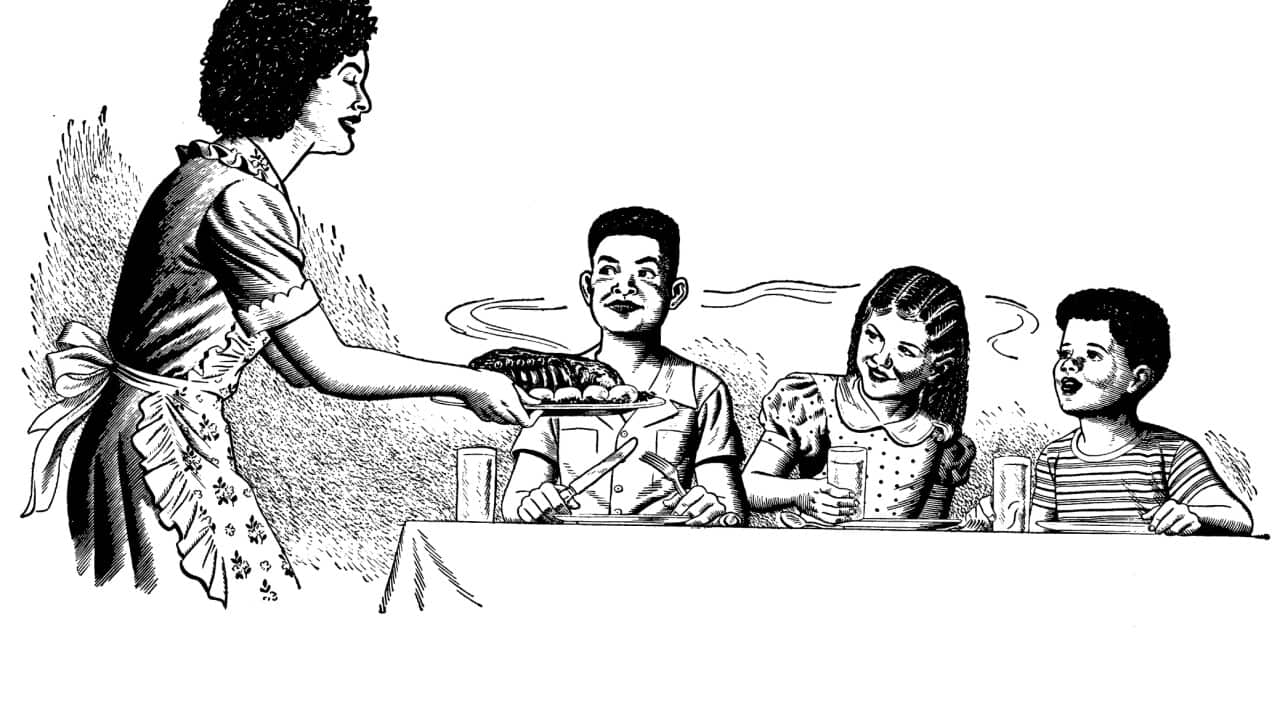Stream free On Demand

Memory Bites with Matt Moran
series • cooking
PG
series • cooking
PG
Remember that time when you bit into a dish and felt transported to another time or place? You remembered the people of your past and watched a mental reel of previous food-related experiences unfold.
Perhaps you tasted a freshly picked tomato that reminded you of the tomatoes your mother used to grow in her home garden. Or you slurped the soup that a friend had just made, and somehow the taste made you remember childhood moments in the kitchen with your beloved grandmother.
But why does taste evoke such a strong sense of memories, often taking you back in time in a visceral way, like little else can?
According to , Professor of Nutritional Sciences at , this occurs when our brains associate the flavour of a food with a distinctive time, place or emotion.
“You don’t remember every time you’ve see a stop sign because there’s nothing distinctive about it,” says Dr Breslin. “You don't associate it with a place or time. But you might remember the chicken soup your grandma used to make you when you taste something similar.

Matt Moran delves into some of Christine Anu's favourite childhood dishes in SBS series Memory Bites. Credit: KITTI GOULD
On the rare occasion you taste or smell something similar to her chicken soup, the feelings you once felt for grandma may come alive again.
So to you, grandma’s chicken soup was distinctive.
Also referred to as food nostalgia by scientists, the main reason for this is actually associated with smell. It’s estimated that up is actually due to our sense of smell. Smell is closely linked to the limbic system in the brain, which is responsible for emotions and memories.
This also helps explain why food-related memories might feel so vivid – they are always associated with a lot of feeling, because of the link between our memories and emotions.
“Food-evoked nostalgia is what happens when you eat something or smell a food, and it automatically takes you back to a part of your past that you look back at in a bitter-sweet way,” says , nutritional psychiatrist and Assistant Professor at Bond University.
Research suggests that when we eat a food that is associated with a memory or experience from our past, certain parts of our brain become altered. Food memories activate both the amygdala, a part of the brain responsible for processing emotions, and the prefrontal cortex, which helps us to regulate emotions and integrate feelings. When these two parts of the brain are activated by a food trigger, the eater will experience a flood of emotions that were once associated with the memory.
For example, if you first tasted coconut juice while on holiday, every time you drink coconut juice you should feel relaxed and happy if that is how you felt when you first tasted the juice. It follows then, that you could intentionally use coconut juice to also induce feelings of relaxation and happiness.
Similarly, if eating a certain pasta dish reminds you of your beloved, deceased mother, then every time you taste those flavours, you will feel the love of your mother and perhaps a sense of nostalgia and loneliness resulting from your loss. People’s reactions to their feelings vary but some individuals could also make it a point to eat the same dish regularly to remember their loved one, while others may avoid it to prevent feeling lonely.
Up to 90 per cent of what we perceive as taste is actually due to our sense of smell.
Dr Lee says can be very powerful because it engages many senses: taste, smell, texture, sight and sound. “Moments that are stored in our long-term memory banks are usually linked to an emotion – happiness, sadness, grief and so on. Our senses are also linked to these emotions.
“All you need to do is eat a certain food which tastes or smells a certain way and a long-term memory may be triggered.”
How memory influences our taste and palates
that it may influence our future food habits. Qualitative research conducted by and her team at Bond University showed that food nostalgia swayed many people’s food choices.
people said things like ‘my mum passed away. Her favourite drink was gin and tonic. I don't like gin and tonic, but I will drink it on purpose now to remember mum’.
“A lot of people change their food preferences to purposely evoke nostalgic feelings.”
We can create positive food memories by eating foods that makes us feel happier and healthier.
that, in some cases, food nostalgia may lead to eating more junk food. “If an adult was given junk food by their parents as a treat or a reward, they may change their food preferences to eat junk food more regularly because of the nostalgia it creates for them.
“Food nostalgia all depends on the person, and the memories and emotions that their brain deteremines to be important."
Forging positive food memories
Although it might hurt to admit it, our food memories may not always be accurate.
“Our memories are very poor at remembering things accurately. If you keep on remembering [an inaccurate account of the past] again and again, then every time you recall that memory, you're remembering your last recollection of that memory. So your memory will get more convoluted as you remember it, over and over again.”
No matter how accurate our food memories may or may not be, Dr Lee says we have the power to steer our eating habits in a positive direction by eating intuitively.
“We need to be in tune with how our body feels when we eat something. We can create positive food memories by eating foods that make us feel happier and healthier.
“In doing so, you can create more positive food memories [and associations]. This could help your relationship with food.”

